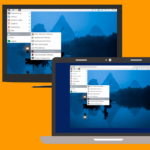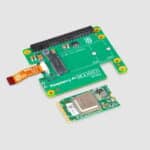Orb shows how fast and reliable your internet connection really is -- available on all major platforms

When it comes to checking your internet connection, many people still turn to old-fashioned speed tests. You get rated with a number or grade, maybe feel good about it, and move on. But the truth is, those numbers don’t tell the whole story. That’s where Orb comes in -- a brand-new app that promises a real look at how your internet actually performs day to day.
Orb was built by some familiar names. Doug Suttles and Jamie Stevens, who helped create Speedtest and Downdetector, are leading the project, along with a group of former Ookla and Fastly veterans. It’s safe to say they know a thing or two about internet performance.
Debian 12-based MX Linux 23.6 is the Windows 11 alternative of your dreams

You know what, folks? Sometimes, the best updates are the ones that don’t try too hard. That’s exactly the case with MX Linux 23.6. There’s no nonsense to be found here -- just a strong Linux distribution that continues to get better.
While Microsoft continues to push AI distractions and questionable design changes in Windows 11, MX Linux sticks to what matters: speed, stability, and letting the user stay in control. In fact, MX Linux 23.6 could truly be the Linux distribution of your dreams!
ExpressVPN finally brings GUI to its Linux app

ExpressVPN has rolled out a much-needed update for Linux users, finally adding a graphical user interface (GUI) to its VPN app. Yes, folks, a GUI for Linux is only being rolled out in 2025! Better late than never, I suppose.
Until now, ExpressVPN users in Linux were stuck with a command-line interface (CLI), while Windows and macOS users enjoyed a more user-friendly experience. This update brings ExpressVPN more in line with competitors like Surfshark, which has long offered a Linux app with a GUI.
Raspberry Pi 5 gets a 16GB upgrade for memory-intensive applications

The Raspberry Pi Foundation has expanded its Raspberry Pi 5 lineup with the launch of a 16GB variant, priced at $120. This new model joins the previously released 4GB and 8GB versions introduced in 2023 and the cheaper 2GB model released last summer.
In a blog post announcing the new model, the company explains that it continues to be impressed by the diverse projects its hardware is being used in.
ScreenView makes it possible to remotely access and control your Raspberry Pi from any web browser

Remote.It has launched ScreenView for Raspberry Pi, providing remote access and control across a wide range of applications. Currently available in beta (with the full version expected in 2-3 weeks), ScreenView allows users to view and control Raspberry Pi screens from any browser interface, making it a versatile solution for developers, students, IoT vendors, and others.
ScreenView for Raspberry Pi supports real-time connectivity and remote management, allowing users to perform tasks such as screen sharing, troubleshooting, and collaboration directly through their web browser.
Sony and Raspberry Pi launch powerful new AI camera for developers

Sony Semiconductor Solutions (SSS) and Raspberry Pi Ltd have teamed up to introduce a new product for AI enthusiasts. The Raspberry Pi AI Camera, compatible with all Raspberry Pi single-board computers, is designed to streamline the development of AI solutions by processing visual data directly at the edge. The AI Camera is available today for $70.
This collaboration is a result of SSS’s minority investment in Raspberry Pi Ltd back in April 2023. Since then, the companies have worked together to create an edge AI platform tailored to Raspberry Pi’s developer community. The key feature of the AI Camera is its use of SSS’s IMX500 intelligent vision sensor. This innovative sensor allows AI processing to happen directly on the chip, eliminating the need for additional hardware like GPUs or accelerators, which are traditionally required for handling large-scale visual data.
Raspberry Pi 5 now offers less memory and a lower price

The Raspberry Pi 5 was first released almost a year ago, today the Raspberry Pi Foundation is unveiling a new 2GB version of the popular one-board computer.
The lowest-cost Raspberry Pi 5 has so far been the 4GB variant, priced at $60. The new 2GB Pi comes in at only $50 and is built on a cost-optimised D0 stepping of the BCM2712 application processor.
Kodi alternative Stremio OS is now available for Raspberry Pi 4 and 5

Stremio OS is now available for Raspberry Pi 4 and 5. This lightweight operating system is designed to run the Stremio media center application, which aggregates streaming content from various services into a user-friendly interface.
Unlike Kodi, none of Stremio's addons are installed on your computer so there's no danger of introducing rogue code (Stremio itself is open source). It will recommend content that you might be interested in and tell you if it’s free and where you can find it. It can play HTTP links, as well as magnet links and torrent files (drag and drop).
AlmaLinux finally gains support for Raspberry Pi 5 -- download it now

The AlmaLinux OS Foundation, a nonprofit managing the community-owned open-source CentOS alternative AlmaLinux OS, has announced support for the Raspberry Pi 5. This has been a while coming as the latest version of the Pi, released in October 2023, has been growing in popularity within the AlmaLinux community.
Koichiro Iwao, an engineer at Cybertrust Japan, played a major role in bringing AlmaLinux Raspberry Pi 5 support to fruition. "In Japan, the Raspberry Pi community is vibrant," he said. "The hardware improvements of the Raspberry Pi 5 over the Raspberry Pi 4 and the community's increasing demand for this support motivated my commitment to building Raspberry Pi 5 support for AlmaLinux OS."
Raspberry Pi AI Kit brings artificial intelligence to the Raspberry Pi 5

It was surely only a matter of time before AI made its way to the Raspberry Pi and today sees the launch of the Raspberry Pi AI Kit. Developed in close collaboration with Hailo, it provides a way of seamlessly integrating local, high-performance, power-efficient inferencing into a number of applications.
The Raspberry Pi AI Kit comprises the M.2 HAT+ preassembled with a Hailo-8L AI accelerator module. Installed on a Raspberry Pi 5, the AI Kit allows users to build AI vision applications, running in real time, with low latency and low power requirements.
Switch from Windows 11 to Linux this Memorial Day with Ultramarine 40

As Memorial Day weekend approaches, many people might be considering a fresh start with their tech. For those looking to switch to Linux, Ultramarine 40 (available here) offers a compelling option. With its new features and improvements, this release could be the perfect way to dive into the world of Linux during the long weekend.
Ultramarine 40 introduces a new codename scheme, aiming to bring a fresh and engaging approach to its releases. The core team will rotate the responsibility of choosing codenames. This release, named after "Lost Umbrella" by inabakumori, marks the first under this new system.
EndeavourOS ARM discontinued: A huge loss for the Linux community

I’m sorry to share some very sad news today. According to a new official blog post, EndeavourOS ARM has been discontinued. This loss is not just tragic because of its negative impact on the ARM Linux community but also for what it represents in the broader open-source ecosystem.
EndeavourOS, a popular Linux distribution, expanded its reach to ARM devices in 2019, thanks to the efforts of a community member known as “Pudge.” His initial scripts for making EndeavourOS compatible with ARM hardware evolved into an official ARM branch, showcasing the collaborative nature of open-source projects.
Raspberry Pi 5 is the 'everything computer' -- out at the end of October

The Raspberry Pi Foundation launched the Raspberry Pi 4 four years ago now. It’s been quite the wait, but a new, much faster follow up is finally here.
The Raspberry Pi 5 is described as the "everything computer" and will run at 2-3x the speed of the previous generation. It’s built on silicon designed in‑house "for the best possible performance".
Android-based Orange Pi OS brings Windows 11's look and feel to Orange Pi computers

Orange Pi is an affordable alternative to the Raspberry Pi. There are several versions of the open-source computer available, including the recently released Orange Pi 5 and Orange Pi 800, and they can run a choice of operating systems, such as Android, Ubuntu, Debian Image and more.
There’s also now a dedicated Android-based operating system called Orange Pi OS which, as well as being able to run a large selection of Android applications, also offers quick switching between Windows 11 and macOS style themed desktops.
Raspberry Pi creates its own Mastodon server -- running on a Raspberry Pi 4

Elon Musk bought Twitter for $44 billion, and he's been doing a terrible job of running things. He made the verification status confusing and nonsensical, but worst of all, he quickly fired thousands of workers. And so, many Twitter users have been abandoning the platform and switching to alternatives. You can find yours truly on Mastodon, for instance.
The folks over at Raspberry Pi are not abandoning Twitter (yet), but they are very alarmed by Musk's erratic behavior. As a result, they have created an account on the Mastodon social network in case they do decide to jump ship. Actually, they took things a step further and have begun running their own Mastodon server (also known as an "instance") at raspberrypi.social.
Recent Headlines
Most Commented Stories
© 1998-2025 BetaNews, Inc. All Rights Reserved. About Us - Privacy Policy - Cookie Policy - Sitemap.